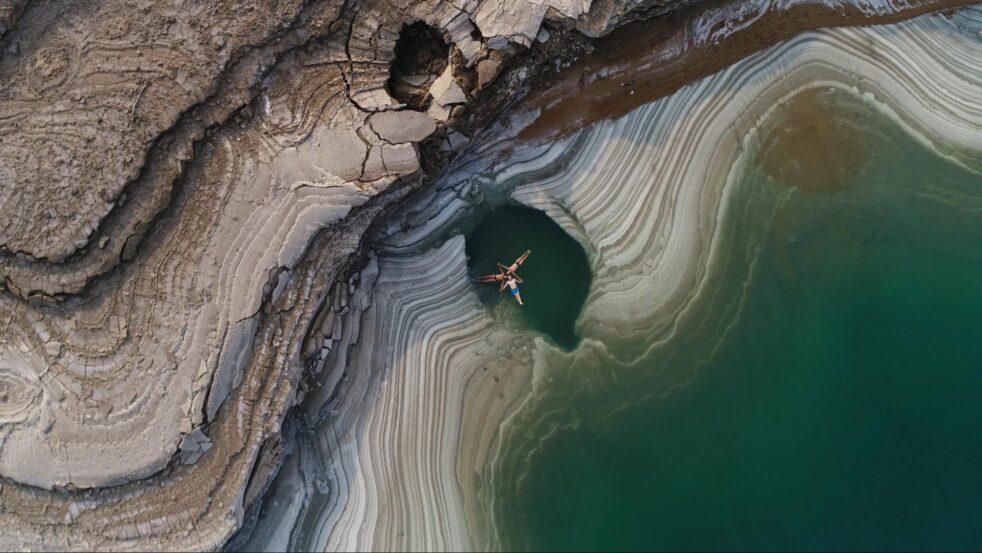Unlike traditional film festivals, the Ivan Allen College’s Global Media Festival brings something different to the screen. The festival showcases unique stories through the lens, with themes ranging from environmentalism to equality.
March 31, 2025, marked the eighth screening in a series of ten. This particular screening was special as it featured two films focused on conservation and ecological issues, specifically in Israel and Palestine.
The annual film series aims to introduce new perspectives on the United Nations’ Sustainable Development Goals (SDGs). “Foragers” by Jumana Manna goes behind the scenes in Palestine and Israel to depict the impact of policies that restrict foraging. Akkoub and za’atar, native to the area, were labeled as endangered by the Israeli government. Despite legislation, scenes in the film tell a story of resilience and unity as locals find joy in their acts of defiance.
Wild, spiny and growing in a harsh environment, the focus of the film — akkoub — leaves viewers questioning political motives as there is no evidence to support the government’s claim that the plant is endangered. As a result of the restriction, the government controls the land and forces locals to buy it from approved vendors. The plant is a staple in cultural dishes and can continue to produce the artichoke-like food as long as the roots remain intact, which is how locals harvest it for their meals. Through a back and forth between courtrooms, fields and family homes, the film raises the question: who determines right versus wrong with nature?
The second film, “Dead Sea Guardians,” was directed by Yoav Kleinman and Ido Glass. Ido Glass and producer Ayalet Glass were present for the event. During the brief intermission, Ayalet addressed the audience to prepare them for what was to come and simply said, “Be brave.”
This message was quickly captured as Oded Rahav, the Israeli main character, fought to protect the Dead Sea. Notorious for being dangerous due to its high salinity, Oded joins forces with Jordanian Munqeth Mehyar and Palestinian Yusuf Matari to swim across the sea — hoping to raise awareness for the Dead Sea and save the ecosystem.
Positioned between Israel, Palestine and Jordan, the body of water is well known for being mineral-rich and having therapeutic properties. Recently, the surface area has decreased by over one-third as water from the Jordan River has decreased for irrigation and other purposes, and mineral mining from the sea has continued to increase.
As water levels decrease and beaches close, Oded pursues a heroic journey to unite the surrounding countries through swimming. While some of Ido’s message may have been lost in translation, the challenges faced by the characters highlight the value of people coming together for a cause.
After hearing about Oded’s idea to swim across the sea, Ido knew it was a story worth telling. He discussed how the chosen clips and unspoken parts of the film craft the issue to be political, yet underlying tones hint at the true cause being economic.
Ayalet spoke on the value of the film, comparing it to a butterfly that flaps its wings on one side of the Earth and causes a hurricane on the other. While it has received international recognition, including nods from the Sundance Institute and the Riviera International Film Festival, it is also being used to educate younger generations in conservation efforts for the Dead Sea and beyond. In the 1970s, ping-pong united China and the United States. Could swimming unite the Middle East?
“Dead Sea Guardians” was produced before the pandemic and more recent escalations in the Middle East. Ido said that some pools of water from the film are already gone. To get involved in the effort, go to deadseaguardians.org/friends-of-the-dead-sea/.
With stories about political prosecution for harvesting crops and people organizing a swim of nations across a deadly body of water, Monday’s films continued the Global Media Festival’s goal of raising awareness about sustainable causes. From land to sea, the challenges and resiliency portrayed are more than just a butterfly flapping its wings; they empower change and raise awareness for global issues. As political and economic tensions continue to rise, one question remains unanswered: Will nature unite or divide us?
